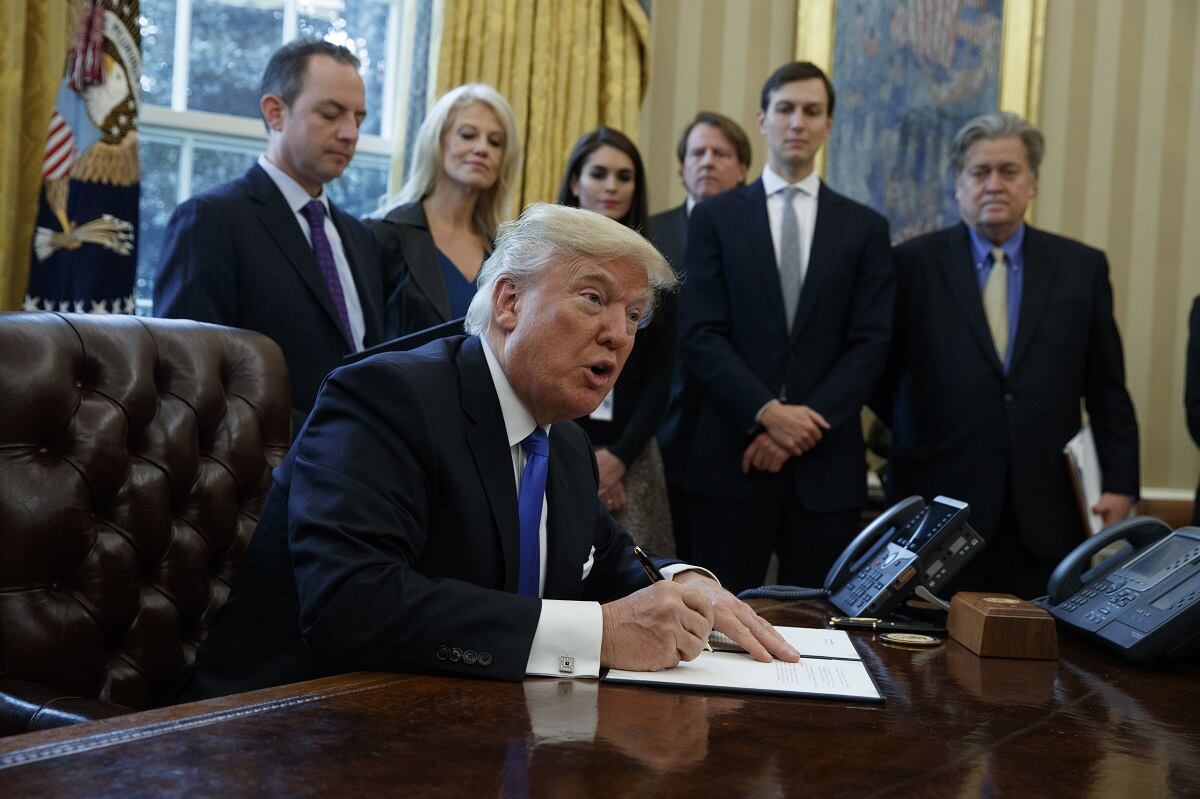Federal agencies will barely be done celebrating Independence Day when they are required to begin changing the way they oversee federal employee union relations, according to July 5 memos from the Office of Personnel Management.
OPM Director Jeff Pon in the memos called on agency leadership to begin implementing as early as July 9 requirements laid out in three fed-targeting executive orders.
The executive orders, issued in late May, restrict federal employees’ use of official time (government work hours used to carry out federal union duties) and those employees’ use of government property during that time, as well as calling for the renegotiation of collective bargaining agreements between unions and agencies.
RELATED

On July 9, agencies will have to take immediate steps to restrict an employee’s use of official time to no more than 25 percent of their total paid time and to end the practice of letting employees have free and discounted use of government property — such as computers, cellphones and conference rooms — to conduct union business.
Union representatives often use these meeting spaces to meet with federal employees who have or are thinking about preparing grievances against the agency, but the executive order would prohibit the use of official time for grievance proceeding preparation except on that employee’s own behalf.
Federal employees will also have to seek advance permission from supervisors to engage in official time and will be considered absent without leave for that time if they fail to do so. Federal employees who accrue too much absence without leave are generally subject to disciplinary action.
These requirements run aground of many collective bargaining agreements between agencies and unions, some of which allow for certain employees to work full time on union duties. The requirements would therefore take effect at the expiration of such agreements, though the executive orders and OPM guidance call on agencies to initiate renegotiations for agreements that better align with the new requirements as soon as possible.
Agencies with more than 1,000 bargaining unit employees also have until July 13 to submit at least one nominee to participate in the Labor Relations Group established under the executive orders. Such nominations to the LRG “should be assigned to an individual at a very senior level who has the trust of the agency head,” according to the memo.
This group will then be responsible for collecting information on collective bargaining agreements across agencies and prescribing best practice and governmentwide standards for future collective bargaining agreements.
Pon also outlined union relations transparency efforts that will be undertaken as part of the executive orders, such as requiring agencies to report the number of hours used, permission given and employee pay grade for future official time usage.
RELATED

Agencies will be required to develop procedures and a monitoring system for official time use by November 21, 2018, and OPM will be required to issue guidance on reporting official time by that date.
Agencies will also have to submit the text of their new collective bargaining agreements to OPM in a machine-readable and disability accessible format within 30 days of the agreement’s effective date. OPM is required to develop a submission format by August 23.
Officials will also have to notify agency leadership at least one year before the expiration or renewal date of any collective bargaining agreement.
This guidance from OPM comes as federal employee unions have already sought legal injunction against the enforcement of the executive orders on the basis that the president had no constitutional or statutory basis to do so, and the lawsuit received bipartisan support from lawmakers in an amicus curie brief filed July 2.
Jessie Bur covers federal IT and management.
In Other News




